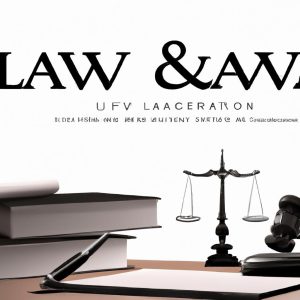As a seasoned attorney specializing in estate planning and property law, I am often asked to provide insight into complex legal concepts that may be unfamiliar to the average individual. One such term that frequently arises in discussions about property ownership is “tenants in severalty.” Though it may sound like a cryptic legal jargon, this concept holds significant implications for those engaged in real estate transactions or estate planning. In this article, we will delve into the intricacies of tenants in severalty, unpacking its definition, implications, and potential advantages for property owners. Stay tuned as we navigate through this fundamental aspect of property law.
Understanding tenants in severalty in real estate law
Tenants in severalty refer to a legal concept in real estate law where an individual or entity holds sole ownership of a property. This means that the property is owned by one person or entity, without any co-owners or partners involved. In this arrangement, the owner has full control over the property and can make decisions about its use, management, and disposition without the need for consensus from others.
One key advantage of tenants in severalty is the simplicity and clarity it provides in terms of ownership rights and responsibilities. With no other parties involved, the owner can make decisions swiftly and independently. However, it’s important to note that tenants in severalty can also have potential drawbacks, such as limited investment opportunities and reduced flexibility in sharing expenses and responsibilities with others.

Key differences between tenants in common and tenants in severalty
Tenants in severalty refers to a property ownership arrangement where an individual holds sole ownership of a property without any co-owners. This means that the owner has full control over the property and can make decisions regarding its use, sale, or transfer without needing the consent of any other parties. In essence, tenants in severalty have complete autonomy over the property in question.
On the other hand, tenants in common involves joint ownership of a property by two or more individuals, where each party has a distinct, undivided interest in the property. Unlike tenants in severalty, tenants in common share equal rights to use and occupy the property, and each party’s ownership interest can be passed on through inheritance. Additionally, tenants in common can sell or transfer their share of the property without the consent of other co-owners, making this type of ownership more flexible than tenants in severalty.

Implications of holding property as a tenant in severalty
Tenants in severalty refer to a situation in which an individual holds property in their own name, without any co-owners or partners. This means that the tenant has exclusive rights to use and control the property, without the need for agreement or approval from anyone else. There are several , including:
- Exclusive ownership: As a tenant in severalty, you have complete control over the property and can make decisions about its use, maintenance, and transfer without the input of co-owners.
- No right of survivorship: Unlike joint tenants or tenants in common, tenants in severalty do not have the right of survivorship. This means that upon the tenant’s death, the property will not automatically pass to any co-owners, but will be distributed according to the tenant’s will or state intestacy laws.

Recommendations for individuals considering becoming a tenant in severalty
Tenancy in severalty refers to a situation where an individual holds real estate in their name alone, without any co-owners. If you are considering becoming a tenant in severalty, there are several recommendations to keep in mind:
- Understand the Responsibilities: As a sole tenant, you will bear full responsibility for the property, including maintenance, repairs, and taxes.
- Consult with Legal Professionals: Before entering into any tenancy agreement, it is crucial to seek advice from experienced attorneys who specialize in real estate law.
| Tip: | Make sure to conduct a thorough inspection of the property before signing any lease agreements. |
By following these recommendations and seeking expert guidance, individuals considering becoming a tenant in severalty can navigate the process with confidence and ensure a smooth and successful real estate transaction.
Q&A
Q: What does ”tenants in severalty” mean in real estate terms?
A: “Tenants in severalty” refers to a single individual or entity owning a property outright, without any co-owners.
Q: How does being a tenant in severalty differ from being a tenant in common or joint tenant?
A: Unlike tenants in common or joint tenants, tenants in severalty have sole ownership of the property and do not share ownership or rights with others.
Q: Can a property have multiple tenants in severalty?
A: No, by definition, tenants in severalty means there is only one owner of the property.
Q: How does having tenants in severalty affect decision-making about the property?
A: With tenants in severalty, the owner has full control over decision-making regarding the property without needing to consult or reach agreements with other owners.
Q: What are the advantages of owning property as a tenant in severalty?
A: Some advantages include having complete control over the property, being able to make decisions independently, and not having to share profits or responsibilities with others.
Q: What are the potential drawbacks of being a tenant in severalty?
A: Drawbacks may include bearing full financial responsibility for the property, not being able to benefit from shared resources or perspectives, and potentially facing challenges in managing the property alone.
In Summary
In conclusion, understanding the concept of tenants in severalty can help you navigate the world of real estate and property ownership with confidence. By being aware of the rights and responsibilities that come with this type of tenancy, you can make informed decisions about your living arrangements. So whether you are a property owner or a renter, remember to consider the implications of tenants in severalty in your next real estate transaction. Stay informed, stay empowered, and make the most of your property rights. Thank you for reading!












